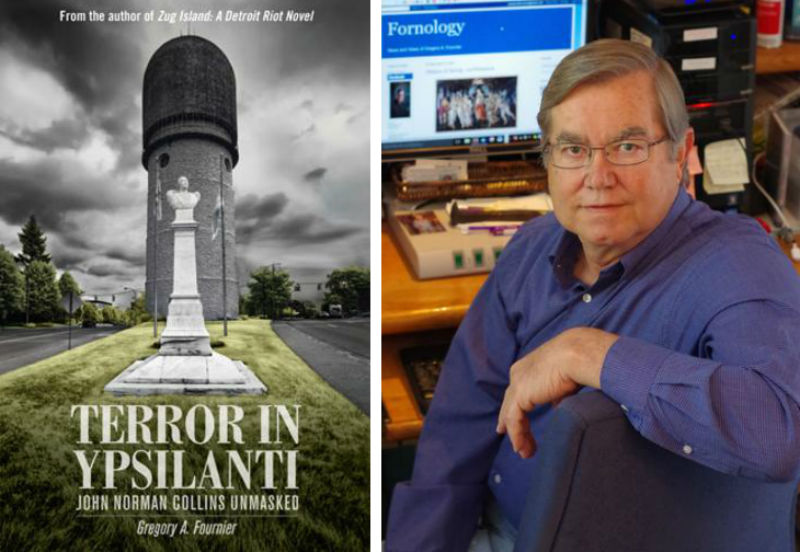"Terror in Ypsilanti" recounts the true story of The Michigan Murderer

"Notice of a psychotic killer in their midst did not resonate with the Ypsilanti, Michigan community in the summer of 1967."
So begins Terror in Ypsilanti, the award-winning book by Gregory Fournier. Not only did this idea not resonate with inhabitants of our area, but the term “serial killer” hadn’t even been devised yet; nonetheless, that is exactly who was stalking young women in Ypsilanti.
John Norman Collins ultimately was suspected of the deaths of seven women over a three-year period. Fournier, who was teaching in Ypsilanti at the time, lived a block away from Collins and “had several negative encounters with him.” But it wasn’t until he “saw (Collins’) face plastered across newspapers that I recognized him.”
While stories and the book The Michigan Murders by Edward Keyes have been written about Collins, Fournier did not feel that the entire story had been told. “I took a terse, journalist approach” to the book, Fournier says. Whereas prior writings often had “faulty information and (did not have) the benefit of hindsight,” Fournier wanted his book to share the story of what happened before Collins’ face was plastered on the front page of every local newspaper.
The book outlines the story as it unfolded before the eyes of the public and the police, and it includes details that have not been made public previously. Using newspaper archives, the second part details Collins’ criminal trial for the rape and murder of Karen Sue Beineman. The final part of the book tells of Collins’ time in prison where he made numerous attempts to dodge his sentence of life imprisonment and efforts to sway public opinion in his favor, including the 1977 interview with The Ann Arbor News, where Collins “took the opportunity to proclaim his innocence and attack the prosecutor and County Sheriff Harvey,” Fournier reports. Eleven years later, Collins appeared on the Detroit morning show Kelly and Company to once again declare his innocence and establish alibis. These alibis, Fournier says, “eventually made their way to the internet and took on a life of their own.”

Despite being suspected of committing seven murders (six in Michigan and one in California that was linked to the crime spree), Collins was only tried and convicted of the Beineman murder. But despite being dubbed the Michigan Murderer, the Co-Ed Killer, the Ypsilanti Ripper (in the U.K.), and the Ypsilanti Strangler (in Canada), the case did not seem to receive the same sort of extraordinary media coverage that other murderers seem to attract. Fournier believes that this is because sensational murders happened the same week that Collins’ trial began: the Tate/LaBianca murders. “(The international and national media) left one week into the Collins trial so they could cover the Charles Manson and Helter Skelter murders; however, the local media dug in and reported the case tirelessly. Were it not for the efforts of the men and women of the Michigan press, this story would have been lost to history.”
Fournier's book is self-published, but it's finding an audience -- and winning awards. “The story has done well regionally and is starting to garner some national and international attention," he said. "The London editor of Dagger: True Crime Magazine asked me to write an article on Collins … which will run in their fall issue, and an Australian company has produced an audio book of Terror in Ypsilanti for distribution worldwide in English-speaking countries.” Additionally, the book won a silver book award in the 2017 Literary Classics Book Awards and received honors from the 2017 International Book Awards.
Beyond the awards and accolades, the book offers a moral: Don't accept people at face value. Fournier says, “Many people have said to me that Collins doesn't look like a serial killer. My question to them is, ‘What does a serial killer look like?’ … Ultimately, if something doesn’t feel right about a person, trust your instincts. Don’t place yourself in a compromised position and recognize danger before it’s too late.”
Patti F. Smith is a special education teacher and writer who lives in Ann Arbor with her husband and cat.
Gregory Fournier will read from the award-winning "Terror in Ypsilanti" on July 12 at 7 pm at Nicola’s Books, 2513 Jackson Ave., Ann Arbor.


































